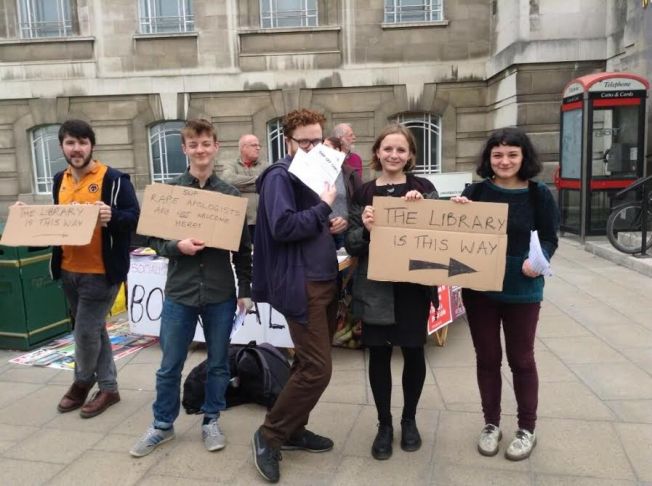You weren’t a member, you tell me, in 2013 when the arguments happened. You’ve heard, of course, there was some controversy but you have been told that the people who left were sectarians. That’s true, isn’t it, they had some grievance with the SWP and they used a disagreement about the SWP’s internal procedures as an excuse to leave? Hadn’t they been planning to leave for years?
In 2010 a man called Martin Smith (“Comrade Delta”) was the National Secretary of the SWP, its day to day leader, the person who employs the other party workers. In July of that year, a 19 year old woman (“Comrade W”) complained that he had mistreated her. She didn’t use the word “rape”, but the people who met her and heard her knew what she was talking about.
From the start, Smith’s supporters (including Weyman Bennett, who worked with him on the SWP’s anti-fascist campaign) put pressure on the women who helped Comrade W, calling one of them a “traitor”, ostracising and dismissing them and forcing them out of the SWP.
The complaint was investigated by Charlie Kimber, who is now the editor of Socialist Worker. He met comrade W, told her that he believed her and that disciplinary action would be taken against Martin Smith. The extent of the punishment was as follows: Smith was demoted from his position as National Secretary but remained in the SWP’s full-time leadership on its Central Committee.
Smith’s demotion was eventually explained to the membership at the SWP’s 2011 conference, where it was introduced by Alex Callinicos who complained about outside forces reporting on internal difficulties within the SWP. He said there was a complaint, he didn’t explain its seriousness and he said that Smith himself had asked to be moved to a different role. The session ended with delegates clapping, stamping their feet in Smith’s defence and shouting, “The workers united will never be defeated.”
In 2012, W, taking at face value the SWP’s recent involvement in anti-rape campaigns, decided to rejoin. She was still traumatised by what had happened, suffering flashbacks and was tearful, and eventually she asked the SWP’s disputes committee (“DC”) to investigate. This time, she did describe what had happened to her in 2010 as rape.
The investigation was loaded: a majority of those investigating were Smith’s friends and appointees. He was given sight of her written statement (which the SWP has always refused to publish). She was not allowed to read his.
A second complainant came forward: at this stage, the DC heard but refused to investigate her complaint.
By a majority, they decided to take no action against him. One person who dissented was the chair of the committee, who found that there probably had been improper sexual conduct – “sexual harassment” – and that Smith’s behaviour was incompatible with membership, or leadership, of a left-wing party.
At the start of 2013, the SWP conference narrowly approved the disputes committee report; from then on large parts of the organisation operated a loyalty test: if you were willing to back Smith, you could remain in the party. if not, you were told to leave. The atmosphere, at its worst, was as hostile as could be. Members of Smith’s personal anti-fascist bodyguard, men in the late 40s, spat in the faces of a woman in her 20s who disagreed with them. Smith’s supporters threatened to beat up another young, male critic. People were silenced, jeered, told to their faces to leave.
The second complaint was eventually heard. It was in writing. It too, has never been published. In careful, painful detail, it described further improper sexual conduct by Smith. This time, and for the first time in the entire scandal, the SWP’s leadership decided that a degree of damage limitation was necessary. A fresh panel was convened and Martin Smith resigned rather than face investigation.
In the SWP, you will be told that Martin Smith was vindicated. He wasn’t. The last panel to investigate his complaint found that there was enough evidence of sexual harassment that if he was to ever seek to rejoin he would have to explain his conduct.
In the SWP, you will be told that the leadership’s critics were a few malcontents, people who were on the verge of leaving the organisation anyway. They weren’t. At least 700 people left, or around a quarter of the SWP’s subs-paying membership. Among those who left were people who had given twenty, thirty, even fifty years of their lives to that organisation.
In the SWP, you will be told that this incident belongs to history, that the SWP has learnt from its mistakes. It hasn’t, the men and women who attempted to cover up a crime are all still in its leadership.
